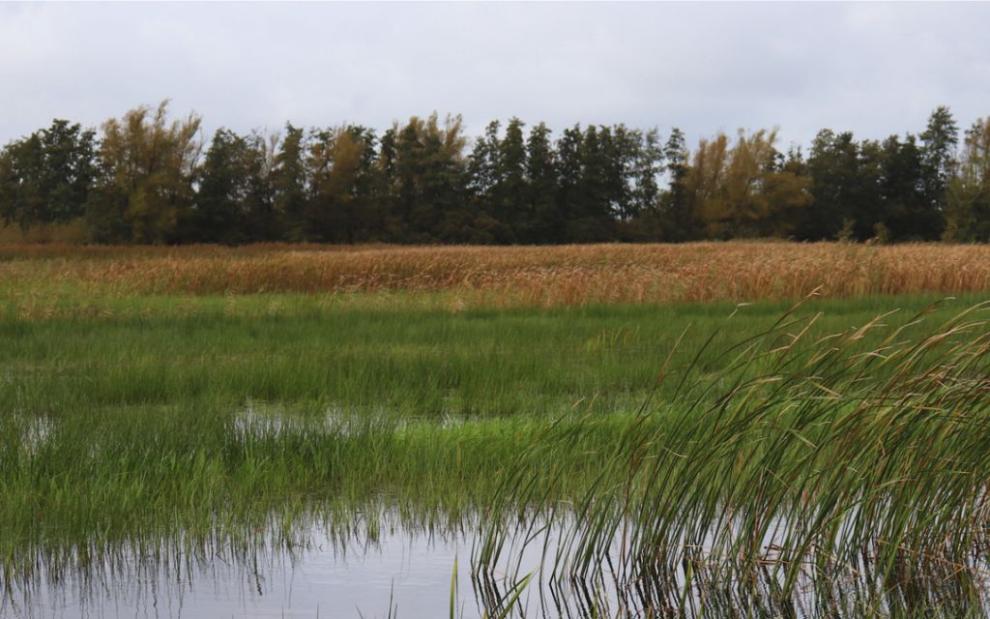The EU Nature Restoration Law is crucial for restoring European nature after decades of biodiversity loss.

Restored peatland area in National Park Weerribben Wieden, the Netherlands. © IUCN NL
Our partner IUCN has shared with us some insights in relation to the European Union’s Nature Restoration Law, relevant in the context of REWET. Here we reproduce their contribution.
The EU Nature Restoration Law is crucial for restoring European nature after decades of biodiversity loss. The law is initiated to turn the tide and stop the crisis in Europe, as a flourishing biodiversity on our continent is essential to deal with climate, food security, and health challenges. IUCN NL and other REWET partner organisations stress the importance of an ambitious and effective Nature Restoration Law, in which peatlands are strongly embedded.
On the week of 7 November, three of the main European Union bodies will discuss the different proposals for the EU Nature Restoration Law. The negotiations between the European Parliament, European Commission, and Council of the European Union started in July 2023 and are now in their final phase. The objective of this third ‘Trilogue’ meeting is to reach a compromise between the different proposals for a final text for the legislation.
Need to restore ecosystems
The EU proposed Nature Restoration Law aims to achieve a long-term recovery of ecosystems, mitigating climate change, and enhancing nature resilience. It is the first EU-wide law focused on the restoration of degraded ecosystems, and also contributes to climate change mitigation and the resilience of nature to the consequences of climate change. The Nature Restoration Law is therefore a crucial component of the European Green Deal and EU Biodiversity Strategy.
There is a great need for a restoration law at EU-level, as 80% of the natural habitats in EU countries are in poor condition, according to the EU Habitats Directive. Europe needs a strong law for nature restoration to improve its ecosystems, which are crucial for the well-being of both nature and people.
The initiative of the new law faced strong backlash from conservative groups, but at the same time counted with strong civil society support, including:
- Joint declaration calling for bringing back Power to the Peatlands;
- A call from 6000 scientists rejecting the unjustified argumentation against the law;
- A statement to support the Nature Restoration Law signed by 90 large companies;
- A joint policy brief from Wetlands International Europe and the Greifswald Mire Centre providing questions & answers on peatlands and a general policy brief on peatlands in the Nature Restoration Law.
Restoring peatlands
Peatlands are among the ecosystems in Europe that are most under threat. More than 50% of the peatlands in northern, western, and eastern European countries have been degraded by drainage to be used for peat extraction, agriculture, and forestry. At the same time, peatlands play a very important role in mitigating the effects of climate change by regulating water and holding high amounts of carbon. Peatlands are also ecosystems with a unique biodiversity and, for example, important for many bird species.
Ambitious and effective peatland restoration
This law is a huge opportunity to provide binding targets for ecosystem restoration at EU level and to address the biodiversity and climate crises, if it has sufficient ambition to restore peatlands and other ecosystems. Targets for the restoration of agricultural ecosystems, including peatlands, have been subject to a re-drafting aiming to reach a compromise between the three institutions. But seeking compromise could lead to less effective peatland restoration.
The REWET partners advocate for an ambitious Nature Restoration Law, in which peatlands are strongly embedded. The Council’s proposal includes a peatland restoration target in Article 9, but contains large loopholes for the EU member states. The European Parliament even proposes to delete Article 9 completely.
REWET calls on EU bodies to continue to include Article 9 in the Nature Restoration Act and close the loopholes, as effective restoration of peatlands is not only essential for European climate and biodiversity goals, but also deliver a significant contribution to future food security and health challenges.
Read the REWET State of Play on the Nature Restoration Law.
About REWET
Peatlands, marshes and other wetlands have a major role in mitigating climate change. In the REWET project, funded by the European Union, we have joined forces with other European organisations to study the full potential of wetland areas. With information from seven open laboratories, such as National Park Weerribben-Wieden in the Netherlands, we develop a comprehensive understanding of how European wetlands can best contribute to climate mitigation and adaptation.